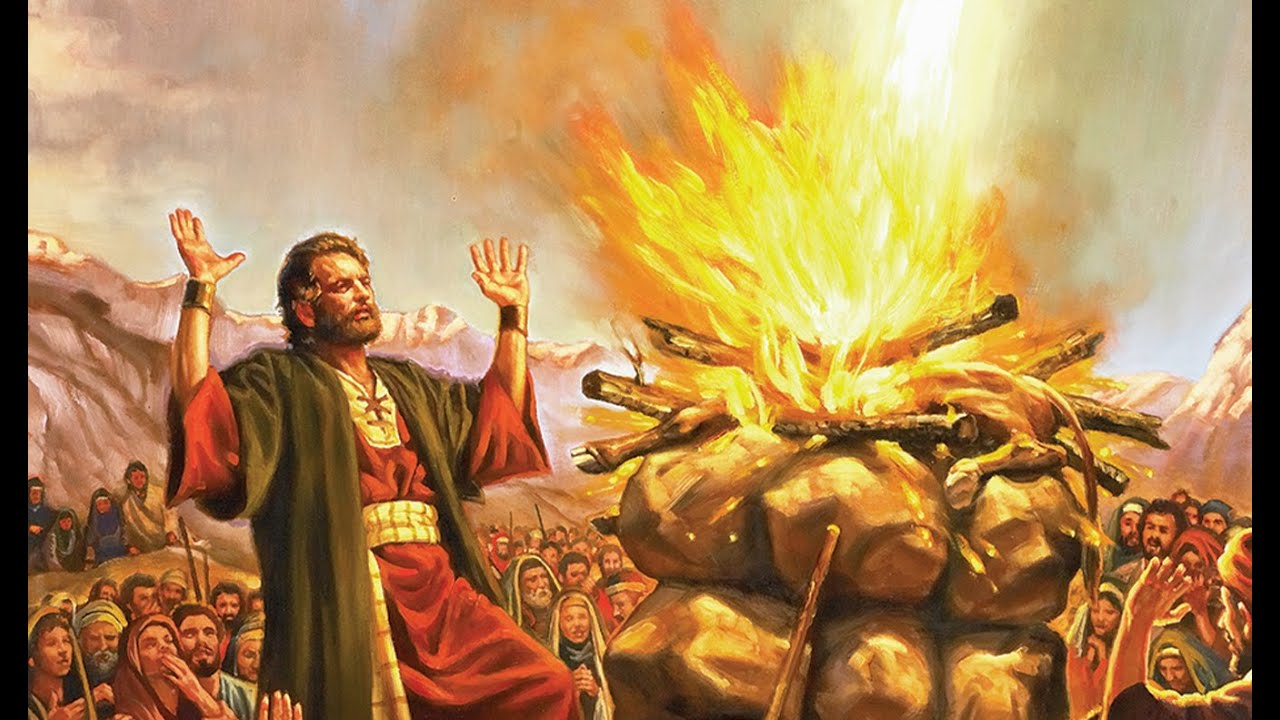To accompany your Come Follow Me study for June 27 to July 3
In addition to reading these prescribed chapters, you may enjoy:
- The corresponding material from the Institute student manual found in the online Gospel Library
- Chapters 12-16 and 20-22 of 1 Kings, to get the rest of the story.
- The video Come Follow Me 2022 LDS (June 27- July 3) 1 Kings 17-19 | Elijah at https://www.youtube.com/watch?v=1t85e2X49uo
- The video Elijah and the Widow of Zarephath at https://www.youtube.com/watch?v=NAwuKUHKKBw
- The video Elijah, a Fearless Prophet at https://www.youtube.com/watch?v=4T-1gpBjUeU
If you would enjoy seeing a Kahoot game related to this material which you could use for your own amusement or with your family or class, click here: https://create.kahoot.it/share/1-kings-17-19/a7a15620-7038-4725-bf15-14a57653f543. (To use it with a group, after clicking on this link, you will need to log into Kahoot, creating a free account if you have not done so previously, then click on the blue “Start” button.)
Points to Ponder in 1 Kings 17-19
1. Next to Moses, there are more miracles recorded in connection with Elijah’s ministry than with that of any of prophet before him. How many can you find in just these three chapters from 1 Kings 17-19? (If you find fewer than 10, look again!)
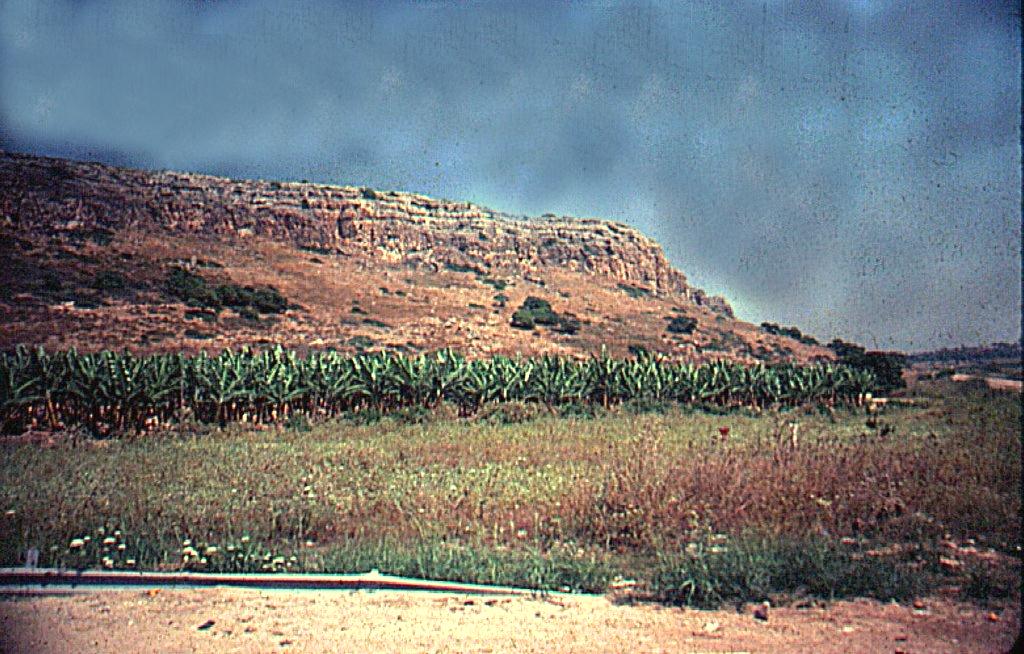
2. What was the presumed purpose of the Lord’s withholding rain from Israel for an extended period of time?
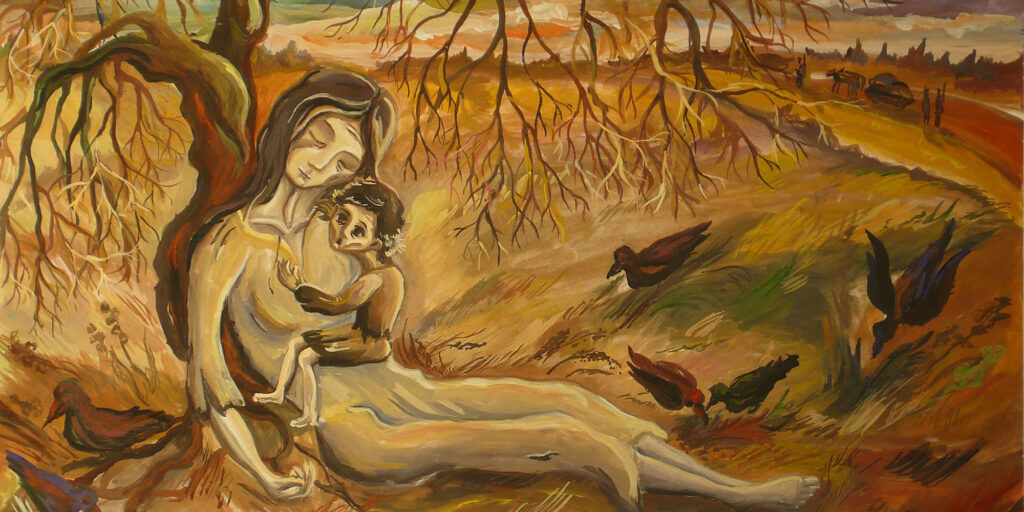
3. How do you justify Elijah’s being so ungentlemanly as to insist on eating before a starving widow and her son?
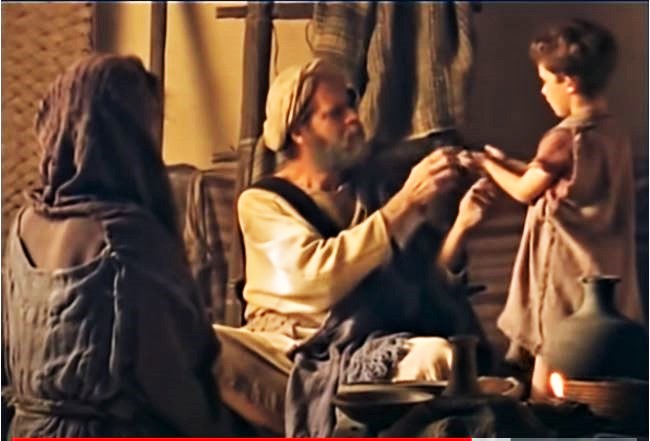
4. Why was it only after the healing of her dead son that the widow said, “Now by this I know that thou art a man of God”? Why didn’t she know it after Elijah gave her an unending supply of flour and oil?
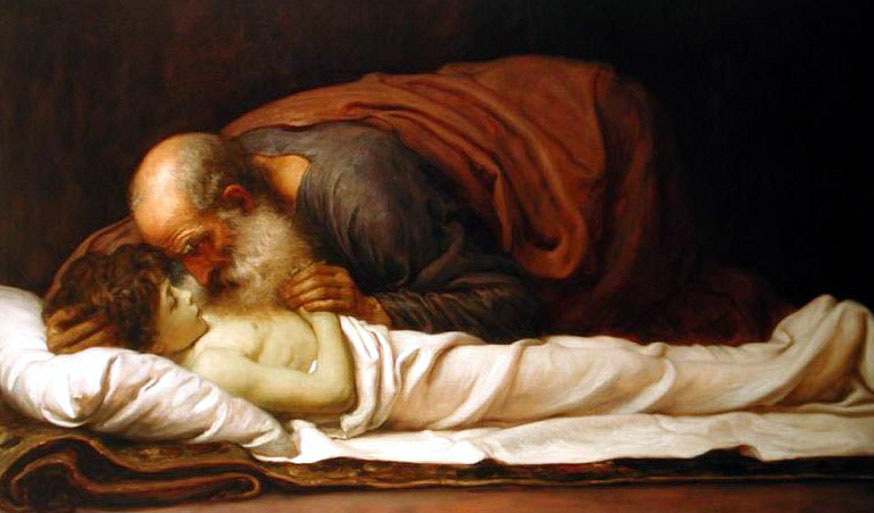
5. Obadiah says in 1 Kings 18:10 that there was no nation or kingdom on earth where Ahab had not looked for Elijah. Could that have been true? Had Ahab really sent emissaries to modern-day Brazil, Australia, and Japan? If not, what does this teach us about the infallibility of the Bible?

6. What sermon could we teach from Ahab’s question to Elijah in 18:17, “Art thou he that troubleth Israel”?
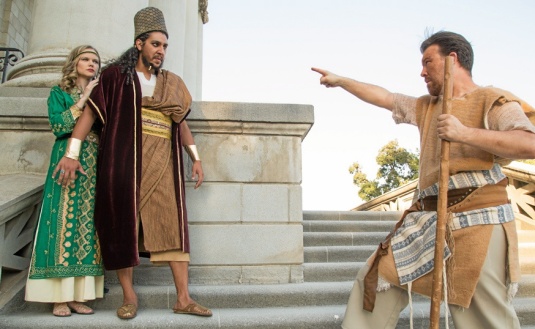
7. What famous passage from earlier in the Old Testament does 1 Kings 18:21 remind you of, where Elijah asks, “How long halt ye between two opinions?”
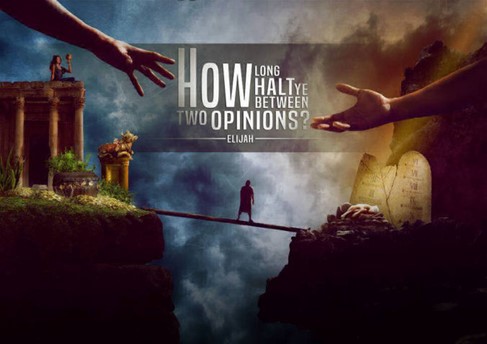
8. How do you feel about Elijah’s mocking the prophets of Baal in 18:27? (See https://www.biblegateway.com/passage/?search=1%20Kings%2018:26-28&version=TLB for an even more graphic translation of the passage from The Living Bible.) Wouldn’t Elijah have been more likely to change the hearts of his adversaries if he had been more polite to them?

9. What was the point of pouring so much water on the altar and filling the surrounding trench with more?

10. Who does Elijah’s suicidal lament remind you of? What principles can we learn from this?
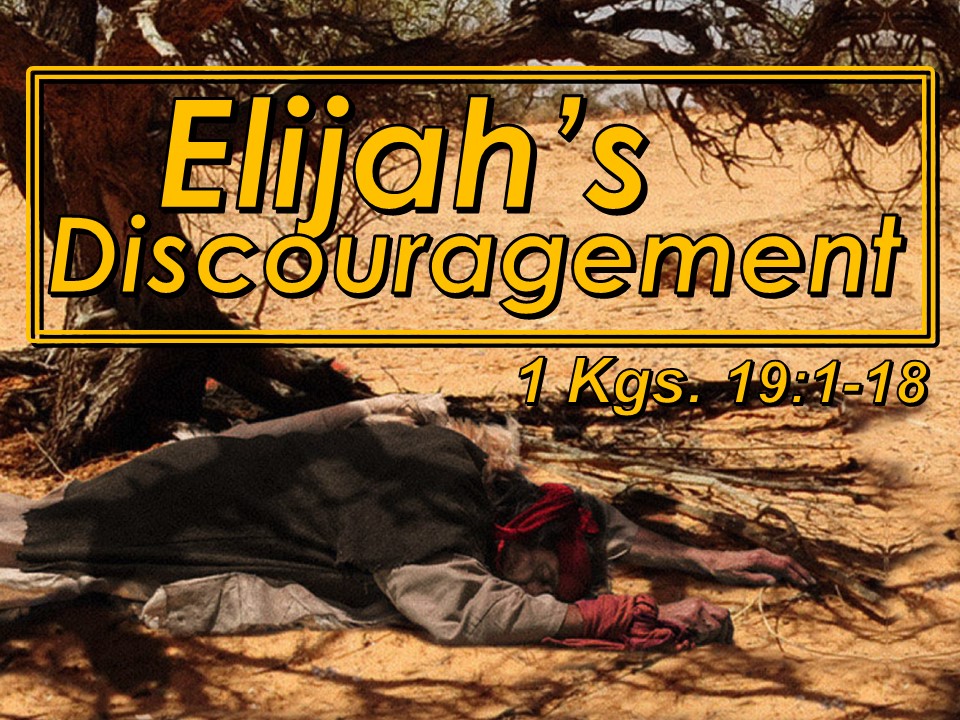
11. Could 1 Kings 19:6 be the first recorded instance of “angel food cake”? (And what would be the point of such a question?)
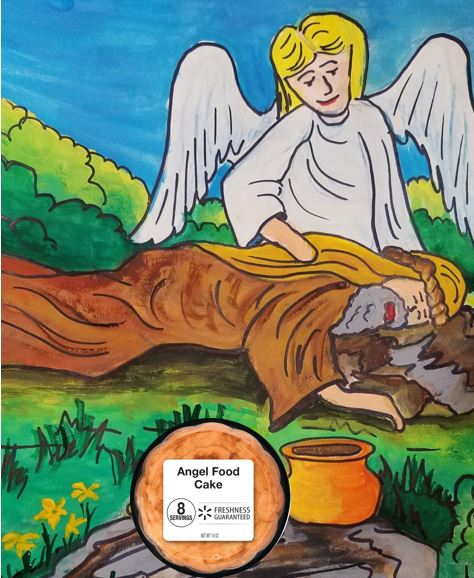
12. What do you consider the important lessons we can learn from Elijah’s experience with God on Mt. Horeb (Sinai)?
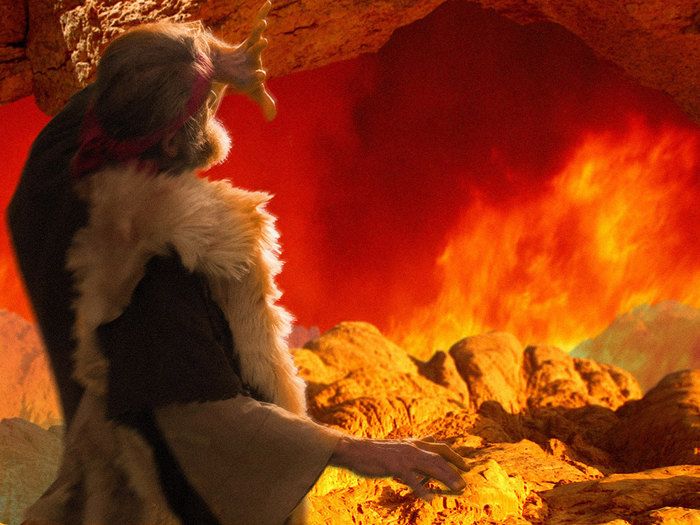
13. What other oft-used phrase from Latter-day Saint history and usage do we find in 1 Kings 19? What does it mean?
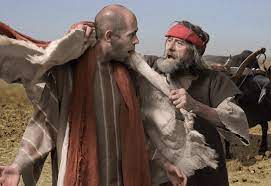
14. What business does Elijah have in anointing a new king for Syria or even one for Israel? Hadn’t he heard about the propriety of a separation of Church and state?
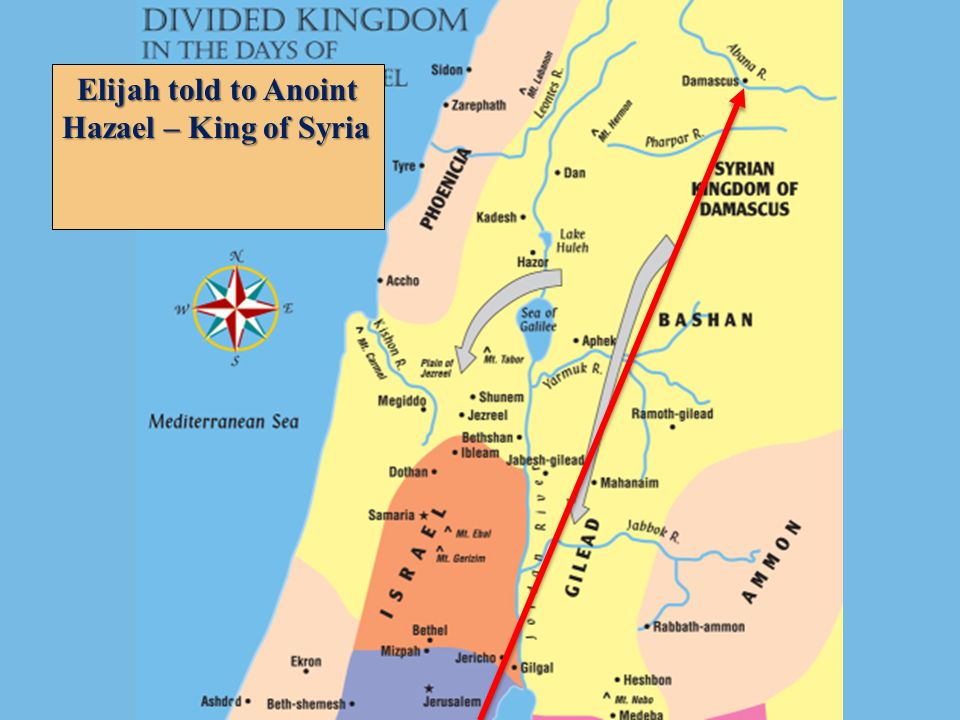
Possible Answers to Points to Ponder in 1 Kings 17-19
1. Next to Moses, there are more miracles recorded in connection with Elijah’s ministry than with that of any of prophet before him. How many can you find in just these three chapters from 1 Kings 17-19? (If you find fewer than 10, look again!)
- Seals heavens so it doesn’t rain (17:1)
- Fed by ravens (17:6)
- Multiplies widow’s food (17:15-16)
- Raises her son (17:22)
- Fire consumes Elijah’s sacrifice (18:38)
- At Elijah’s command a great rain comes after a long drought (18:45)
- Elijah gets to Jezreel walking before Ahab does riding! (18:46)
- Is fed by an angel (19:6)
- Fasts 40 days and nights (19:8)
- Lord provides a great wind, an earthquake, and a fire before revealing Himself to Elijah in a still small voice (19:12)

2. What was the presumed purpose of the Lord’s withholding rain from Israel for an extended period of time?
A similar drought in Helaman 11 brought the Nephites to repentance. Presumably, the Lord wished to give the Israelites the same opportunity. It also provided the opportunity for Elijah to perform some great miracles and for a widow to show us an example of great faith.
3. How do you justify Elijah’s being so ungentlemanly as to insist on eating before a starving widow and her son?
It gave the widow the opportunity to qualify for a great blessing, since as Ether 12:6 reminds us, “Ye receive no witness until after the trial of your faith.”
4. Why was it only after the healing of her dead son that the widow said, “Now by this I know that thou art a man of God”? Why didn’t she know it after Elijah gave her an unending supply of flour and oil?
Your choice. There is no clear answer in the scriptures. Perhaps she really did say it earlier, but it didn’t get recorded. Perhaps she was even more moved by the dramatic raising of her son from the dead than by the multiplication of her oil and flour. Perhaps her faith, comparatively weak at first, had had time to mature. We do know that faith isn’t generated from miracles but may be nourished by them.
5. Obadiah says in 1 Kings 18:10 that there was no nation or kingdom on earth where Ahab had not looked for Elijah. Could that have been true? Had Ahab really sent emissaries to modern-day Brazil, Australia, and Japan? If not, what does this teach us about the infallibility of the Bible?
This seems to be a case of hyperbole, or exaggeration for the sake of emphasis. It reminds us that:
- Just because the Bible records someone as having said something, it doesn’t mean that that person’s statement is literally true.
- Hyperbole was considered a valid form of literary expression anciently, as it is today. Even Jesus used it when he referred to a mustard seed as the smallest of all seeds (which it is not) and the grown mustard plant as the greatest of all plants (with which the sequoia would want to differ). (Matt. 13:31-31) One needs to understand the point the speaker or author was trying to make and not insist on it being literally true in all cases. Similarly, a young girl who says, “I saw the cutest dress today at the mall,” does not have to prove that there is no dress in the entire world which could be considered cuter.
- “We believe the Bible to be the word of God so far as it is translated [and recorded and interpreted] correctly.”
6. What sermon could we teach from Ahab’s question to Elijah in 18:17, “Art thou he that troubleth Israel”?
Ahab was accusing Elijah of having caused the devastating drought and famine to the land, not willing to admit that he, himself, and his pagan wife were the principal reason why the Lord chose to inflict the temporal suffering as a means of possibly helping the people avoid eternal spiritual suffering. It reminds us of Alma 3:19, where we are told, “Even so doth every man that is cursed bring upon himself his own condemnation.”
7. What famous passage from earlier in the Old Testament does 1 Kings 18:21 remind you of, where Elijah asks, “How long halt ye between two opinions?”
To me, it sounds a lot like Joshua’s closing invitation to his people, “Choose you this day whom ye will serve; whether the gods which your fathers served that were on the other side of the flood, or the gods of the Amorites, in whose land ye dwell: but as for me and my house, we will serve the Lord.” (Joshua 24:15). Tragically, in Elijah’s day, Israel was still undecided about which god they preferred to worship.
8. How do you feel about Elijah’s mocking the prophets of Baal in 18:27? (See https://www.biblegateway.com/passage/?search=1%20Kings%2018:26-28&version=TLB for an even more graphic translation of the passage from The Living Bible.) Wouldn’t Elijah have been more likely to change the hearts of his adversaries if he had been more polite to them?
Elijah presumably recognized that the prophets of Baal were not at all likely to have a change of heart, as they had too much invested in their false religion, but there was reason to hope that some of the many Israelite onlookers could be persuaded. Elijah here spares no ridicule of the idea that an inanimate statue could be a true god, hoping that some of his listeners would recognize more easily how silly it really was.
9. What was the point of pouring so much water on the altar and filling the surrounding trench with more?
Elijah wanted to make it abundantly clear that there was no possibility that he had simply devised a clever magic trick, with fire already going underneath the altar which he could fan into visible flames at the appropriate time. Such was not an unknown approach among those who promoted the worship of pagan deities.
10. Who does Elijah’s suicidal lament remind you of? What principles can we learn from this?
It sounds a lot like Moses’ lament in Numbers 11:10-15, where he says, “I am not able to bear all this people alone, because it is too heavy for me. And if thou deal thus with me, kill me, I pray thee, out of hand.” We are reminded by Moses’ and Elijah’s experiences that depression can come to anyone, and the fact that a man is called to be a prophet doesn’t mean he won’t have to go through trials and temptations like those the rest of us experience. But it also reminds us that God was there to lift both Moses and Elijah, and He will lift us, too, once we have learned all we need to from the experience.
11. Could 1 Kings 19:6 be the first recorded instance of “angel food cake”? (And what would be the point of such a question?)
Maybe. 😊 Obviously, there is no spiritual significance in such a silly question, but it may remind us that reading the scriptures doesn’t have to be boring and that we can find lots of fun passages in them, if we look, as well as much spiritual nourishment.
12. What do you consider the important lessons we can learn from Elijah’s experience with God on Mt. Horeb (Sinai)?
This is the origin of the oft-quoted phrase, “a still small voice.” (19:12). It reminds us that we needn’t expect great and visible miracles, such as earthquakes and fire from heaven, as we seek to get answers from God, but that we need to attune our spiritual ears to hear that “still, small voice” that is easily blocked out by the static of earthly cares, sin, and temptations. It is probably even more urgent for us to learn to recognize that voice than to get God to transmit it, which He likely does with much greater frequency than that with which we receive and recognize it.
13. What other oft-used phrase from Latter-day Saint history and usage do we find in 1 Kings 19? What does it mean?
In 19:19 we read that Elijah “cast his mantle [or coat] upon” Elisha, signifying that he designated him as his successor. We similarly speak of Joseph Smith’s “mantle” having fallen on Brigham Young, of the “mantle” of a bishop coming upon one newly called to that service, etc. We use the term simply to mean the power, authority, and feelings appropriately associated with a call to a specific office in the Church.
14. What business does Elijah have in anointing a new king for Syria or even one for Israel? Hadn’t he heard about the propriety of a separation of Church and state?
The Lord, as King of Kings, has every right in the world to appoint leaders of both temporal and spiritual kingdoms. Moses was both the religious and temporal head of ancient Israel, and Mosiah and Benjamin were among the Nephites. A prophet always outranks a president or king in the divine scheme of things. In today’s world, it is indeed appropriate that there be a separation of church and state, but not a separation of religion from politics. An editorial in the Times and Seasons during Joseph Smith’s lifetime stated: “The highest folly that disgraces the United States is that truth and holiness, which combined and practiced compose religion, should not be mixed with power and policy, which is the essence of government.”
